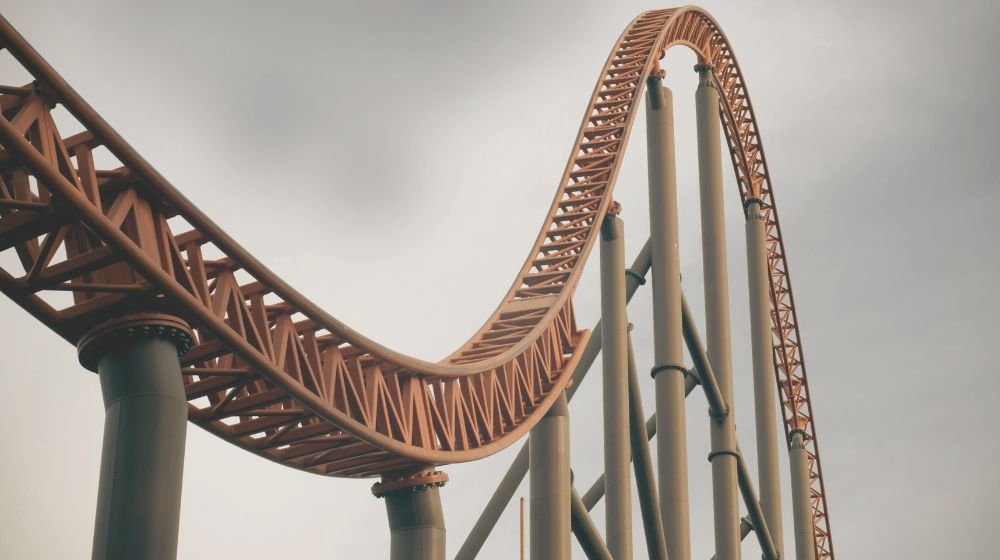I’m afraid I’ll be bored in a healthy relationship
Mikel writes: “I am worried that a healthy relationship will bore me.”
Dear Mikel,
Do you like rollercoasters? There was a time when I loved them. Rollercoasters were my steadfast cure for the monotony and boredom of teenage life in suburbia. I still remember the weird sensation of stepping off a rollercoaster and putting my feet back down on solid earth and how the ground suddenly felt flatter than it’d been before.
Everyone knows that toxic relationships are bad for you, but only those of us who’ve actually been in them know the other side … the way in which, like a rollercoaster, they can be kind of exciting.
There are the downs, of course. But there are also the wild highs, and all the twists and turns that leave you breathless.
In other words, what toxic relationships lack in terms of long-term happiness, fulfillment, and kindness, they make up for in high-intensity drama and the guarantee that there will never be a dull moment.
In comparison, healthy relationships can feel a little flat.
I remember the first time I worked with a client through two back-to-back abusive relationships. Then she got into a new relationship with a healthy partner. And just as I was in the middle of silently congratulating myself on the work we’d done together, she dropped a bombshell by saying: “I’m so bored!”
That first time, I thought maybe the relationship really was boring and it just wasn’t right for her. Fast forward to today — now I’ve seen this particular rodeo often enough to know that feeling bored is something that happens for most people who’ve experienced a high-intensity toxic relationship or two.
Like intoxicating substances, the highs in toxic relationships are great at giving us a temporary thrill before the hangover sets in.
Why is it that we forget the hangover so quickly and it’s only the highs we remember? Sure, she brought a date with her to my birthday party and danced with him all night without even looking at me … but the next morning she showed up at my apartment with my favorite bagels and a dozen roses.
It’s like the agonizing pain, sleepless nights, and constant anxiety end up making every good moment ten times sweeter.
In this way, healthy relationships just can’t compare. By definition, they lack the excruciating lows that are needed for the highs to have that same quality of intensity. The predictability of a healthy relationship makes it easy to end up taking the good things for granted.
Compared with the high drama of toxic relationships, healthy ones can seem boring, especially when we’ve spent enough time in the cycle of intense highs and lows to become desensitized to the simple pleasures and joy that comes with connecting with another person.
If you talk to anyone who has figured out how to live a sober life after years of the highs and lows of addiction, you know that it takes time to re-sensitize oneself and rediscover how to experience the more subtle qualities of feelings like excitement.
Here’s something else I know. When the dramatic highs and lows of a toxic relationship take up all your attention, you have no space to think about anything else. This means you don’t have to think about the past or work on yourself or address past trauma. All your attention is focused on anticipating the next blowup or the latest shocking revelation.
In other words, toxic relationships are a great distraction from thinking about ourselves or paying attention to our inner world.
In my experience, part of what people crave with these kinds of relationships is the distraction from focusing on their own work of healing and personal growth.
I get it. There’s nothing particularly sexy about healing past trauma, repairing one’s relationship with oneself, and developing the skills for creating healthy relationships with others. It’s hard work and it’s often slow. It takes time before we even know whether or not we’re changing and growing as a result of the efforts we’re putting in.
So it’s honestly understandable why you might prefer to take another ride on the toxic relationship rollercoaster instead. But I will tell you that there is life and joy and pleasure … and even excitement … on the other side too.
It takes some time to reset your nervous system and re-attune yourself to the more gentle ups and downs of regular life without a high drama relationship. It might be a while before you’ll be able to feel the full thrill and delight of doing normal, everyday things with someone who is reliable, kind, and thoughtful instead of predictably unpredictable and casually hurtful.
But I will add this last thing, too. Those who decide to seek out this new adventure often find that being in a healthy relationship throws open a door to totally new possibilities.
If the excitement of a toxic relationship is like a tornado that blows in and wrecks your life while sweeping you off your feet—then a healthy relationship is like finding yourself suddenly in Oz where there’s an entirely new world to explore.
And on that note, I’m wishing you a joyful and exciting life lived in technicolor.
~Angela
Creating fulfilling relationships after trauma is a journey. Enter your email to subscribe to Ask Angela and get thoughtful, trauma-informed relationship advice delivered to your inbox.
Ask Angela is an advice column dedicated to the topic of having fulfilling relationships after trauma. Click HERE to submit a question for Angela.
DISCLAIMER: this content is intended for informational purposes only and does not constitute professional medical or psychological advice, diagnosis, or treatment. Always seek the advice of your physician or other licensed health care provider with any questions or concerns you may have regarding a medical condition.
about angela Amias, LCSW
Angela Amias, LCSW is a relationship therapist and nationally-recognized expert on trauma and relationships. She’s the co-founder of Alchemy of Love, which provides trauma-informed relationship programs and resources. She’s also the founder of the Institute for Trauma Informed Relationships, which provides training and education to therapists and coaches who want to help their clients heal past wounds and create more fulfilling relationships.
As an expert on trauma and relationships, Angela has been featured in numerous publications, including Today, Oprah, Cosmopolitan, The Independent, Well + Good, Inc., Forbes, Business Insider, Salon, MSN, Women’s Health and the Toronto Sun.






